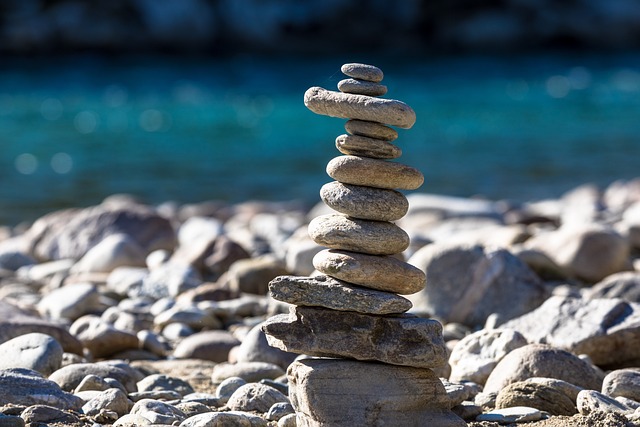The Importance of Life Balance in Personal Development
Life balance plays a crucial role in personal development. This concept encompasses the idea of giving adequate attention to various facets of our lives, such as career, relationships, health, and personal interests. Often, individuals become so engrossed in one area—like work—that other vital aspects suffer. Maintaining a well-rounded life balance helps foster emotional, mental, and spiritual growth. As we navigate through life, we encounter challenges that can disrupt this harmony, leading to stress and dissatisfaction. Achieving a balance allows us to develop resilience, better manage stress, and enjoy our experiences instead of merely enduring them.
When we speak of life balance, it’s not about achieving a perfect equilibrium where every aspect of life holds equal weight. Rather, it is about understanding the ebbs and flows of different life stages. For instance, you may find a need to focus more on your career in one phase while prioritizing family life or personal hobbies in another. Recognizing these shifting priorities facilitates a personalized approach to your life balance and consequently aids in personal development. By assessing what matters most and aligning your time and energy accordingly, you cultivate an environment conducive to growth and fulfillment.
One of the primary elements of achieving life balance revolves around self-care. Many equate self-care with pampering or luxury, but it encompasses much more. Self-care involves taking the time to engage in activities that nurture your physical, emotional, and mental well-being. Activities like exercise, meditation, reading, or spending time with loved ones contribute immensely to a balanced life. When you invest in self-care, you not only recharge your energy but also gain clarity on your life goals and aspirations. This clarity plays an indispensable role in personal development, significantly influencing the decisions you make and how you approach challenges.
Understanding the Dimensions of Life Balance
Life balance is not a one-size-fits-all model; it has various dimensions that need your attention. Recognizing these dimensions can help you gauge where you stand and what areas require improvement. Some primary dimensions include emotional, physical, social, and spiritual well-being. For example, emotional well-being highlights the importance of being in tune with your feelings and processing them constructively. It encourages practices like journaling or talking to a therapist, which can facilitate personal development by fostering emotional intelligence. Understanding your emotional landscape allows you to navigate relationships and professional interactions more effectively.
Then we have physical well-being. This dimension emphasizes the importance of a healthy lifestyle encompassing diet, exercise, and sleep. Physical health impacts mental health, so neglecting this area can lead to feelings of fatigue, irritability, or even anxiety. Regular physical activity releases endorphins, often termed ‘feel-good hormones,’ which can significantly elevate your mood and productivity levels. When you feel good physically, you naturally possess greater resilience to stressors, which fosters a positive feedback loop of self-improvement.
The social dimension plays a crucial role as well. Human beings are inherently social creatures. Building and maintaining relationships is integral to personal development. A supportive network offers a sense of belonging, provides different perspectives, and helps you navigate difficult circumstances. Consequently, investing time in nurturing these relationships can enhance both your emotional and social well-being. It’s essential to cultivate environments where you can express yourself freely and engage in meaningful conversations that fuel your personal growth.
The Influence of Work-Life Balance on Personal Development
In recent years, the phrase “work-life balance” has gained prominence, with good reason. Our careers often take center stage in our lives, shaping our identity and self-worth. However, an overwhelming focus on work can lead to burnout and strain relationships. To prevent this, integrating leisure activities, family time, and self-care into daily routines is vital. Doing so not only enriches your personal life but also enhances your productivity at work. When you leave room for social gatherings, exercise, or even hobbies, your mind responds positively, improving your ability to think creatively and solve problems.
Striving for work-life balance allows you to set clear boundaries. You empower yourself to say no and prioritize tasks that align with your long-term goals. You reduce the risk of associating your self-worth solely with work achievements. This shift in perspective can significantly boost your confidence and overall well-being. It promotes a healthier attitude toward work pressure, enabling you to approach different tasks with a refreshed mindset.
Also, fostering a healthy work-life balance contributes positively to personal development. When you allocate time for varied experiences outside of work, you gain new skills, insights, and knowledge. Engaging in community service, pursuing a hobby, or even experiencing new cultures exposes you to diverse perspectives that can profoundly shape your worldview. Each new endeavor adds to your personal narrative and equips you with tools that enhance your problem-solving capabilities and adaptability—traits essential for personal growth.
Strategies for Achieving Life Balance
Implementing strategies for achieving life balance may seem daunting, but it can be quite manageable with the right approach. Begin with self-assessment; evaluate how much time you currently dedicate to various life dimensions. Journaling can serve as a beneficial tool in this regard. Document your daily activities and reflect on where you spend most of your time. Identifying patterns can reveal areas where you might be overcommitting or neglecting essential aspects of your life.
After assessing your current balance, set concrete, attainable goals. Define what balance looks like for you. Is it spending more time with family? Allocating a specific number of hours each week for personal development activities? Whatever it may be, setting SMART (Specific, Measurable, Achievable, Relevant, Time-Bound) goals will give you direction and motivation. Establishing such objectives breaks down the overwhelming feeling of needing to balance everything at once into manageable tasks.
Adopting time management techniques can also drastically improve your life balance. Techniques such as the Pomodoro Technique, where you work for 25 minutes and then take a 5-minute break, can enhance your productivity and provide the necessary respites to recharge. Utilize planners, digital calendars, or even mobile applications designed to help you prioritize tasks and remind you when it’s time to switch focus. The more organized you are, the easier it becomes to implement balance. Additionally, remember to celebrate small victories; they contribute to your sense of achievement and keep you motivated.
The Role of Mindfulness in Life Balance
Mindfulness significantly enhances your ability to achieve life balance. Being mindful involves focusing your attention on the present moment without judgment. This practice cultivates awareness of your thoughts, emotions, and bodily sensations, allowing you to engage more fully with each area of your life, whether it’s work, family, or personal interests. Mindfulness encourages you to acknowledge when you feel overwhelmed or burnt out, prompting you to take a step back and reassess.
Moreover, incorporating mindfulness techniques—like meditation or mindful breathing—into your routine can help ground you. Such practices reduce stress and anxiety and improve your overall emotional well-being. As you become more aware of your internal state, you begin to notice what truly matters to you. This awareness helps enhance life balance by highlighting areas needing more attention or lessening the focus on things that don’t align with your long-term goals.
Furthermore, mindfulness can help you engage in self-care more effectively. When you dedicate time to reflect and breathe, you cultivate a deeper understanding of your needs, leading to more intentional decisions about how you spend your time. This newfound clarity allows you to be more in tune with yourself and fosters resilience in the face of stressors. Ultimately, the practice of mindfulness harmonizes beautifully with the pursuit of life balance and personal development.
Life Balance as a Dynamic Process
It’s crucial to recognize that achieving life balance isn’t static; it’s a dynamic, ongoing process. Your circumstances, feelings, and priorities will shift. As a result, you may find yourself constantly renegotiating the balance in your life. Adaptability becomes your ally. When you accept that life balance may fluctuate, you empower yourself to embrace change and challenge the status quo. You learn to remain flexible in your approaches, adjusting your goals or methods as life demands.
This adaptability opens new avenues for personal development. Often, we discover our most significant growth when we step out of our comfort zones. Challenging yourself to experience new opportunities or face unforeseen circumstances promotes resilience and self-discovery. Instead of fearing the imbalance, treat it as an opportunity for learning and growth.
Moreover, reflecting on your journey becomes vital. Regularly check in with yourself to determine if you feel fulfilled or whether any aspect might need more attention. Such self-reflection helps you become proactive rather than reactive when it comes to maintaining balance. Journaling or engaging in discussions with trusted friends can serve as effective means to gain insights into your life balance journey.
Conclusion
Life balance significantly impacts personal development, guiding you toward a more fulfilling, enriched existence. By understanding its dimensions, implementing strategic approaches, and embracing mindfulness, you develop a toolkit for navigating life’s complexities. Remember, achieving balance is an ongoing process that evolves with you. Embrace the journey and explore all the avenues it offers for personal growth, connection, and overall well-being.
FAQ
What is life balance?
Life balance refers to the harmony and prioritization of various aspects of your life, such as work, relationships, health, and personal interests, to achieve overall well-being.
How does life balance contribute to personal development?
Life balance allows individuals to allocate appropriate time and energy to different areas. This multidimensional focus fosters growth, resilience, and emotional intelligence, enhancing overall personal development.
Can self-care improve life balance?
Absolutely! Self-care activities nurture your physical, emotional, and mental health, enabling you to recharge and maintain a healthier balance between various life aspects.
What strategies can I use to achieve life balance?
Strategies include self-assessment of time allocation, setting SMART goals, applying time management techniques, and incorporating mindfulness practices to stay present and aware.
Is life balance a one-time goal?
No, life balance is a dynamic process that requires ongoing assessment and adjustment to accommodate life’s changes in circumstances, feelings, and priorities.



